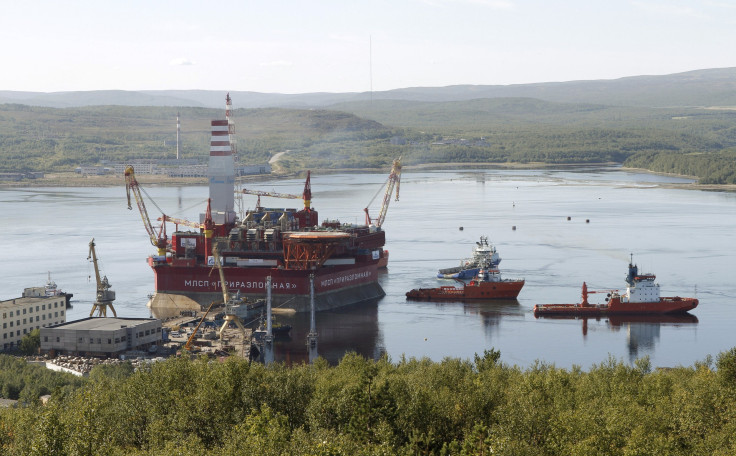Russian Energy Sanctions: US, European Measures Could Threaten Exxon, BP Oil Ties With Russia

U.S. and European officials could soon levy the toughest slate of energy sanctions so far against Russia, according to multiple media reports. The sanctions would bar Western energy companies from working with Russia on big-ticket crude oil projects in Russia’s Arctic, deep seas or shale formations.
While the measures wouldn’t apply to current oil production, they would block billions of dollars in future exploration investments by companies such as Exxon Mobile Corp. (NYSE:XOM), BP PLC (NYSE:BP) and Royal Dutch Shell PLC (NYSE:RDS.A), U.S. media outlets said. BP owns one-fifth of Russian state energy company OAO Rosneft, while Exxon and Rosneft have a deal to drill in the Arctic Ocean. That operation is expected to start producing oil later this year.
“It’ll deny them some contracts for sure, but it hurts Russia a lot more,” a U.S. official speaking on condition of anonymity told the Wall Street Journal. “This puts [Russia’s] future economic growth in danger.”
Previous energy sanctions only targeted Western exports of advanced oil technologies. Earlier this week, EU diplomats said they were considering sanctions that would affect Kremlin-controlled energy companies like Rosfnet, the pipeline monopoly Transneft and natural gas giant OAO Gazprom.
The latest measures, though, would deal the strongest blow to Russia’s oil ambitions, because it needs Western partnerships to tap unconventional resources like deep-sea and shale formations. No company outside the U.S. or Europe has the specialized techniques or technologies to do so, Bloomberg News noted.
If enacted, “it would significantly curtail Russia’s future oil production capacity,” Jason Bordoff, former energy adviser to President Barack Obama and founding director director of the Center on Global Energy Policy at Columbia University, told Bloomberg. “That would be a very big deal.”
U.S. and European officials cautioned that the deal isn’t final, and it could be scrapped altogether if last week’s cease-fire between pro-Russia separatists and Ukraine holds firmly. The EU has delayed implementing its broader package of sanctions pending the outcome of the agreement, which took effect on Friday. Reports of shelling in key separatist strongholds indicate the cease-fire is off to a shaky start.
© Copyright IBTimes 2025. All rights reserved.





















